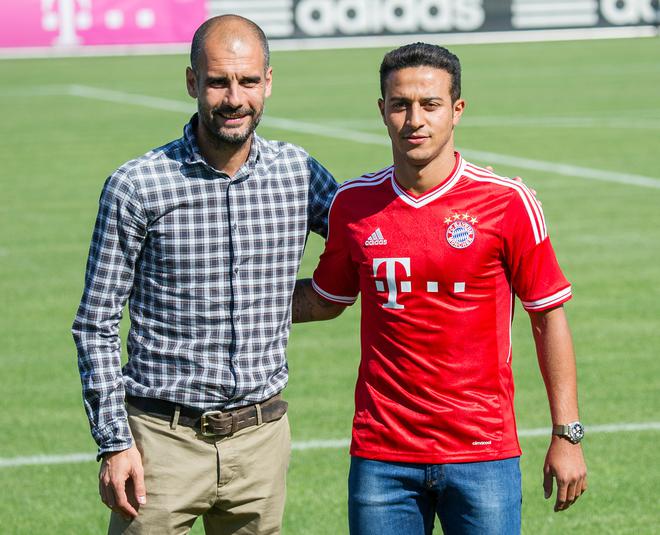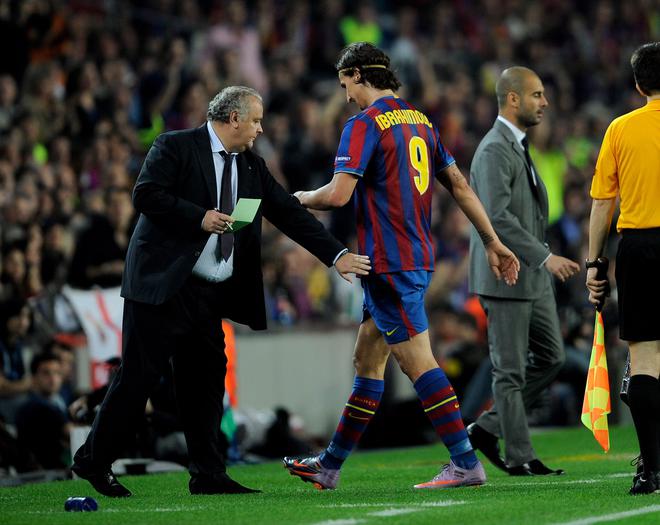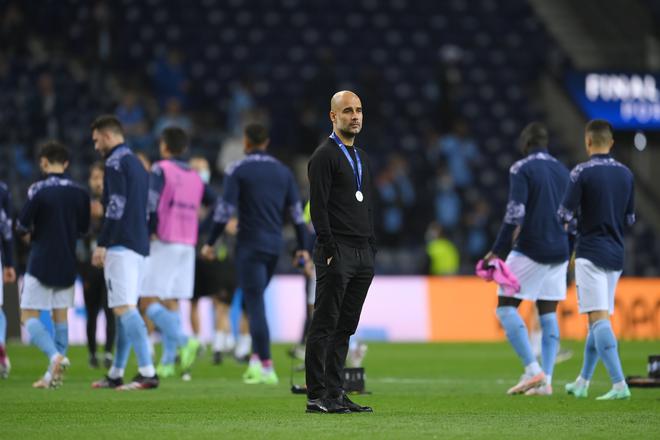Barcelona had lost the LaLiga crown to bitter rival Real Madrid for two successive seasons in 2007 and 2008 under head coach Frank Rijkaard, and club president Joan Laporta’s next step to take the team back to the top was to gamble on an untested Josep ‘Pep’ Guardiola.
Guardiola, who came through the fabled La Masia (Barca’s academy) and went on to play and then captain the first team, had just led the Barcelona B team back to the Segunda Division B (Spain’s third tier) by winning the Catalonia division in his first season as a coach.
According to Laporta, when he approached him about the job, Guardiola responded saying that he hadn’t the courage to hire him.” Laporta, though, was convinced that Guardiola would be the man to revive Barcelona while playing the Barca way. His decision was justified when the club won a historic treble in his maiden season and would go on to win LaLiga two more times and the Champions League again in his four years among other trophies there. “We chose a philosophy, not a brand,” Laporta would later say.
The philosophy which Guardiola has implemented, over the course of the last 15 years with success, is now a sought-after ‘brand’ among the best clubs in Europe. Since Guardiola’s departure in 2012, Barcelona has been desperately seeking to recreate his brand of football.

Years after his exit from Bayern Munich, Thiago Alcantara said the club still employed his ideas during matches. Manchester City and the City Football Group (CFG), Guardiola’s employers since 2016, have recreated the ‘Guardiola Blueprint’ across their various affiliated clubs. His influence was also stamped in Spain’s national team’s golden generation when it won the World Cup and the European Cup between 2010 and 2012.
Guardiola, who modelled his philosophy on Johan Cruyff, revolutionised one-touch football to another level with the speed at which his teams passed through teams and suffocated teams off the ball. While those who believed in his ideas would call him a ‘perfectionist’ (Xavi Hernandez), those who fell foul of his methods labelled him a ‘philosopher’ (Zlatan Ibrahimovic).

In one of his early press conferences from his days as Barcelona coach, Guardiola was asked to explain his philosophy. He simply put it as, “I get the ball, I pass the ball. I get the ball, I pass the ball. I get the ball, I pass the ball...”
The financial backing in the transfer market and the best facilities at his clubs have allowed Guardiola to bring out various iterations of possession-based football, producing some spell-binding attacking football and innovations seen in the modern era.
From his early days in Barcelona, where the team was sprinkled with diminutive technically gifted footballers to the physically overpowering, yet skilful ball-players in the current Manchester City team, Guardiola has pursued perfection through evolution.
While the ethos of stifling opposition high up the pitch was a consistent feature in his teams, his recent City team has been conservative in that department and has been focussed on not getting caught on counter-attacks.
While he has undoubtedly upskilled quality players to another level, Guardiola, who took his first steps in coaching with the Barcelona B team, has rarely placed his trust in an academy player. Sergio Busquets and Pedro Rodriguez (both at Barcelona in 2009) and tipped-for-great-things Phil Foden (Manchester City) remain the only players who have managed to break through under Guardiola.
Another blemish against his name would be that he has not won a Champions League — the biggest club competition prize in Europe — since 2011. Also, he has not won the continental trophy without the best player in the world, Lionel Messi. Guardiola’s teams since Barcelona have been well-rounded teams with exceptionally talented players but have lacked the individual brilliance of a Messi. In the only Champions League final he has played in since 2011, he lost the final against Chelsea with Manchester City.

Critics have often alluded to ‘overthinking’ in big games for Guardiola’s failures in the Champions League. The most infamous decision-making was his ploy to not use a designated defensive midfielder in his starting XI in the final against Chelsea after having started either Rodri or Fernandinho in all of the club’s previous 59 games that season. City lost 0-1 to a counter-attack goal and managed just a single shot on target.
It’s hard to say if the decision had a significant bearing on the result. In the previous two meetings against Thomas Tuchel’s Chelsea that season, City had played with Rodri, and both Rodri and Fernandinho, respectively, and still ended up losing both times. Guardiola rationalised his use of Ilkay Gundogan in the single pivot for the Champions League final stating the German would help speed up the play against Tuchel’s deep-block defence.
“If I tell you the reason I made the decision, maybe you think I’m right. If I win, I’m right, if we lose I’m wrong. In this business, you have to accept it. It was a tight game and in many ways, we were better but we lost. Would I do differently now? Maybe, yes but that doesn’t count,” Guardiola continued to address the decision in the build-up to the final against Inter Milan on Saturday as City aims to win a first Champions League crown.
While Guardiola insists that his players and the City team, which has not won the Champions League before, must make the ‘definitive step’ and get over the line, he doesn’t believe his own legacy is dependent on him winning the Champions League again.
The staggering numbers accumulated across Guardiola’s 14 seasons in management speak for themselves. His teams have scored 2048 goals while conceding just 622 goals across competitions. He also has an impressive win percentage of over 70 in all three clubs. He has won the league in 11 of his 14 seasons and has reached the Champions League semifinals a record 10 times – most for any manager.
Despite Guardiola’s reluctance to get drawn into his tryst with the competition, his appointment at City was not a gamble and was done with the aim of taking claiming the ‘holy grail’ of the Champions League. A victory would certainly embellish his glowing CV and mark him out as the man to put City in the same breath as its famous rival, Manchester United.







